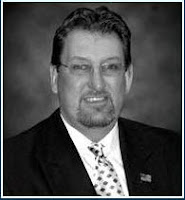Elder Abuse 25 Times More Prevalent Than General Public Lead to Believe
February 06, 2011 /24-7PressRelease/ -- Preliminary results indicate that abuse of the elderly occurs 25 times more often than officially reported, according to the New York State Elder Abuse Prevalence Study of November 16, 2010.
Abuse occurs at a rate of 76 per 1,000 State residents - physical, psychological, financial. Abuse of non-financial mistreatment occurs at the rate of 46.2 per 1,000 State residents.
The highest rate is major financial exploitation (theft of money or property; use of items without permission; impersonation to get access; force or deception to get items such as money, bankcards, accounts, powers of attorney) - 41 per 1,000 surveyed.
The report compared "documented cases" (those referred to agencies like Adult Protective Services) which identified 11,432 victims in 2008; yielding a rate of 3.24 elder abuse victims per 1,000 seniors, against the much higher self-reported number in this study.
The report's numbers show:
- All types of elder abuse - 23.5 unreported cases to every one reported.
- Financial exploitation - 43.9 self-reported cases to every one reported.
- Neglect cases - 57.2 cases unreported for every one reported.
This suggests a significant gap between elder abuse reported and cases referred to formal elder abuse service systems, such as Adult Protective Services (APS).
Overall, the study found elder abuse frequency nearly 24 times greater than the number of cases referred to agencies that assist seniors - social service, law enforcement, legal authorities. An estimated 260,000 older adults in the State have been victims of at least one form of elder abuse since turning 60.
More than Simple Abuse
Most people associate "elder abuse" with a physical act. This study demonstrates that a substantial amount of the abuse is financial exploitation. Seniors often have substantial assets under their control. Americans over the age of 55 control 70 percent of the nation's wealth. MetLife reported that from March 2009 "cases actually reported to authorities represent only the 'tip of the iceberg." This new study confirms the significant underreporting of elder abuse in the State.
One article notes approximately 60 percent of substantiated APS cases of financial abuse involve adult children, compared to 47 percent for all other forms of abuse. Most distressing is the unsavory involvement of family members. Another study found that 16 percent of fraud was committed by a member of the senior's family. Examples include fraudulent transfers of property; transfers of property for less than fair value, or mortgages obtained for cash.
Many of the elderly, especially women, may not understand the value of their assets. The Federal Trade Commission found that fraudulent telemarketers direct nearly 80 percent of their calls to seniors.
Other Financial Abuse
The FBI website contains an exhaustive list of reasons why seniors are preyed upon:
- Senior citizens are most likely to have "nest eggs," own their homes, and/or have excellent credit.
- Those raised in the 1930s, '40s and '50s were taught to be polite and trusting. Criminals exploit these traits.
- Older Americans are less likely to report fraud; why, because they may not know where or how to report, are too ashamed, may not realize they were victimized. Seniors may keep these crimes secret out fear of losing their independence.
- Seniors are often poor witnesses - memory may be faulty, a failure to supply detailed information, or the lapse of time until the harm is has been discovered - makes it even more difficult.
- Exploitation in products promising increased cognitive function, virility, physical conditioning, cancer treatment, etc. are commonplace.
Those who exploit the elderly unrelenting in their efforts to steal the financial security that took a lifetime to achieve.
How to Prevent
Prepare. Have a well-planned estate. Make sure the proper legal instruments are in place. Meet with an experienced estate planning attorney. If you suspect abuse to anyone by anyone, report it without delay.
These are real concerns. We are not suggesting that it will happen to you. Merely that the best way to protect yourself and those you love is to be proactive.
What Should You Do
If you suspect this may have occurred, act without delay. Contact an experienced elder abuse attorney. We are here to help.
Article provided by Adams Law Firm PC
Visit us at www.nyelderinjurylaw.com
Source=>> 24-7Press Release.Com
















1 comment:
Excellent grab of a PR, Ray,
This could be the study many of us financial abuse advocates were waiting for.
The key here for all of us is of course the 'self-reported' cases. (This is the first linkage of the 'how' in 'unreported cases' I can get my arms around mentally.)
Even though we know through logistical logic that any 'reported vs. unreported' whatever will have the numbers skewed toward unreported, this seems like a terrific foundation for us advocates to build on.
Thanks again, Ray.
Post a Comment